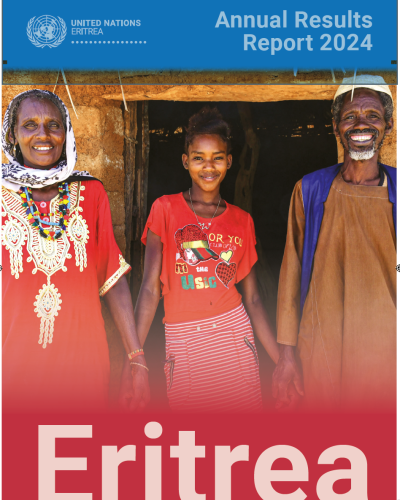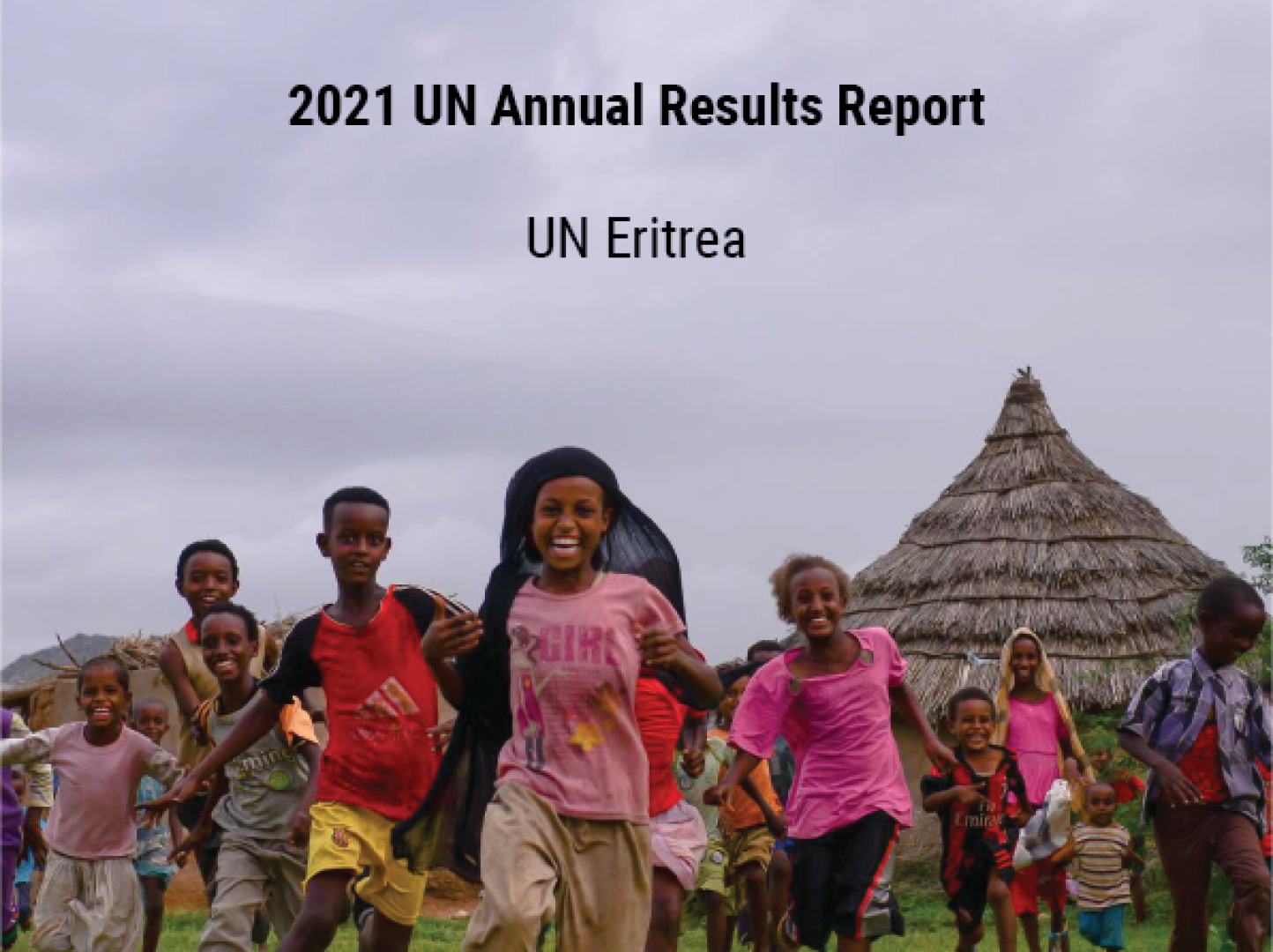UN Eritrea 2024 UN Annual Results Report

We are pleased to present the 2024 Annual Results Report of the United Nations in Eritrea, highlighting the tangible progress achieved under the UNSDCF 2022–2026. In the face of global challenges—from climate shocks to economic pressures—Eritrea has demonstrated remarkable resilience, and the UN has remained steadfast in its commitment to supporting inclusive development, focused on our shared priority of leaving no one behind. Reflecting on our first year as UN Resident and Humanitarian Coordinator, we are deeply inspired by Eritrea’s resilience, self-reliance, and commitment to progress. The nation’s journey toward its 2030 aspirations underscores the transformative power of strategic partnerships and innovative solutions. Throughout 2024, the United Nations Country Team worked closely with the Government of Eritrea and key stakeholders to advance the Sustainable Development Goals (SDGs). Our tailored interventions, in synergy with Eritrea’s self-reliant development model, have driven meaningful progress in key areas such as health, education, climate resilience, and food security, directly improving the lives of the most vulnerable. Together, we achieved the following results: Health: The percentage of births attended at health facilities increased from 71% in 2023 to 81% in 2024, enabling over 61,000 women to safely give birth with professional care. Education: Girls outperformed boys in school retention, with 87.8% of girls reaching Grade 5 compared to 82.7% of boys. This highlights significant progress in gender equality in education. Women’s Rights: Eritrea achieved 94% village-level abandonment of Female Genital Mutilation (FGM) across all 2,840 villages nationwide in 2024—up from just 32% in 2015. This is a testament to the impact of legal enforcement, social mobilization, and community-led change. WASH (Water, Sanitation, and Hygiene): Eritrea achieved 94% Open Defecation-Free (ODF) status across all 2,840 villages, up from just 32% in 2015, significantly improving rural sanitation, hygiene, and health outcomes. Food security and economic inclusion: Fish production increased by 66.7%, from 16,000 tons in 2023 to 18,431.6 tons in 2024. This was made possible by the establishment of new ice production infrastructure, boosting incomes and job opportunities, particularly for women and youth. These achievements are a result of the strong partnerships between the UN, the Government of Eritrea, development partners, and other stakeholders. Grounded in mutual respect and alignment with national priorities, Eritrea’s collaborative approach positions it to capitalize on emerging opportunities from global reforms and forward-thinking dialogues. Looking ahead to 2025, the UN remains committed to supporting Eritrea’s SDG progress through five core priorities: food systems, data, climate, social protection, and communications. These initiatives, spanning four programmatic areas and one crosscutting theme, address immediate needs while unlocking long-term opportunities in emerging sectors such as tourism—ultimately fostering inclusive, sustainable development. We extend our deepest gratitude to the Government of Eritrea, our development partners, and the communities for their invaluable collaboration. Together, we are building a future founded on dignity, opportunity, and shared progress for all Eritreans.


















